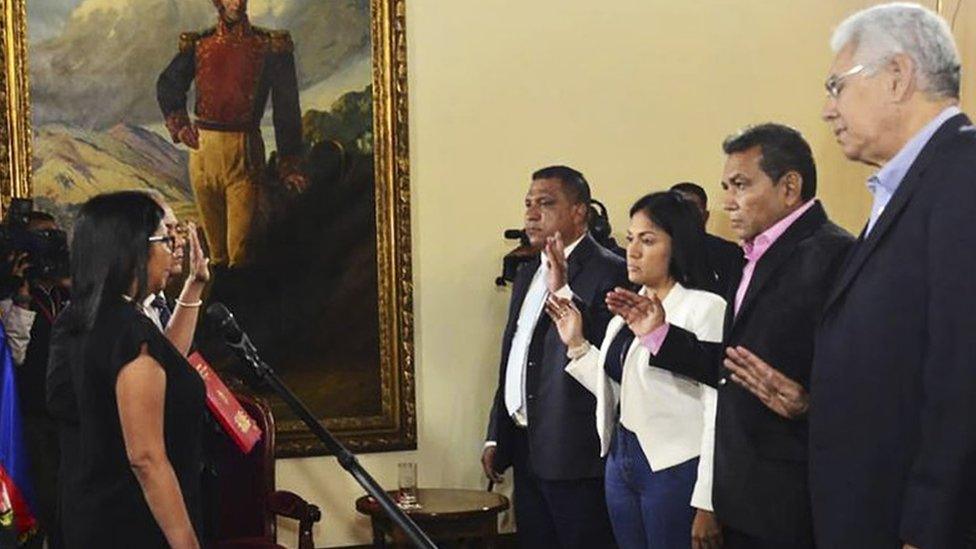EU to impose arms embargo on Venezuela as crisis deepens
- Published
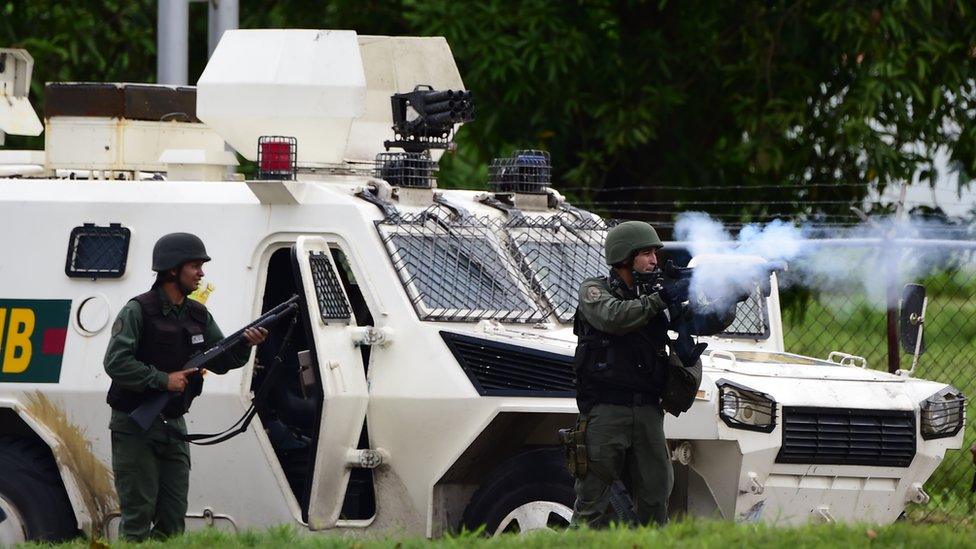
Under the EU sanctions, arms exports to the Venezuelan security forces will no longer be allowed
Ambassadors of European Union member states agreed on Wednesday to impose an arms embargo on Venezuela.
They also said there would be a ban on any equipment which could be used to repress opponents within Venezuela.
The sanctions come after a UN report released in August accused Venezuela of human rights violations , externaland using excessive force against the opposition.
Venezuela dismissed the allegations as "lies" and said it was the victim of an "imperialist war".
Blacklist
The country has been mired in a worsening economic and political crisis which triggered mass anti-government protests earlier this year.
Several key Venezuela opposition figures have been prosecuted, jailed or stripped of their political rights since Nicolás Maduro was elected president in 2013.
On Friday, Venezuela's Supreme Court stripped opposition politician Freddy Guevara of his immunity from prosecution and said he would be prosecuted on charges of inciting violence.
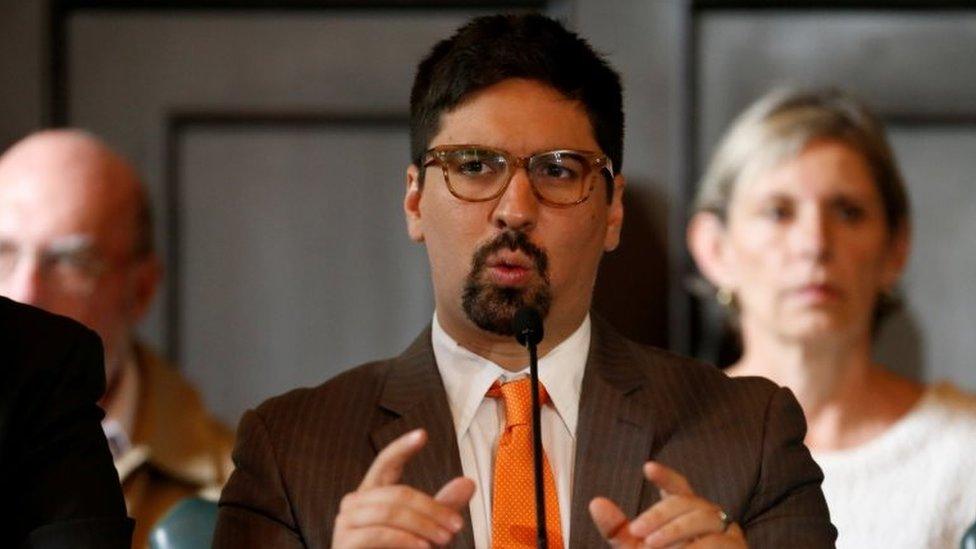
Freddy Guevara was stripped of his immunity
Mr Guevara, who is the vice-president of the opposition-controlled National Assembly, has sought refuge in the residence of the Chilean ambassador in Caracas.
Canada and the United States have already imposed sanctions on Venezuela and frozen the assets of Venezuelan individuals they say are linked to human rights abuses.
Diplomatic sources told Agence France Press news agency that the EU would also create a blacklist of Venezuelan individuals, although no names had been added to it yet.
"The political aim remains to force the government to get round the negotiating table with the opposition and contribute to getting out of the current political crisis," the source told AFP.
'Meddling'
EU foreign ministers are expected to sign off the arms embargo on Monday.
Member states have also agreed to ban companies from exporting surveillance equipment which could be used to spy on opposition figures.
Foreign criticism is routinely dismissed as "meddling" by Venezuelan officials, and sanctions imposed by the US were cited by President Maduro as evidence that "imperialist forces" were conspiring to oust him from power.
Opinion polls suggested that following the US sanctions, President Maduro's popularity rose for the first time in months.
- Published5 November 2017
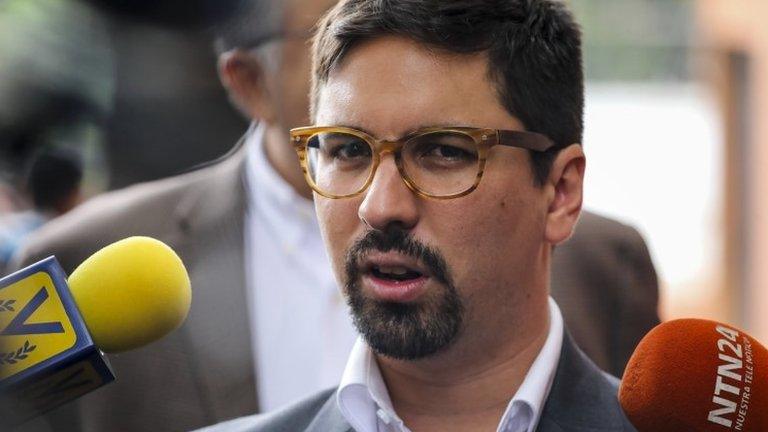
- Published26 October 2017
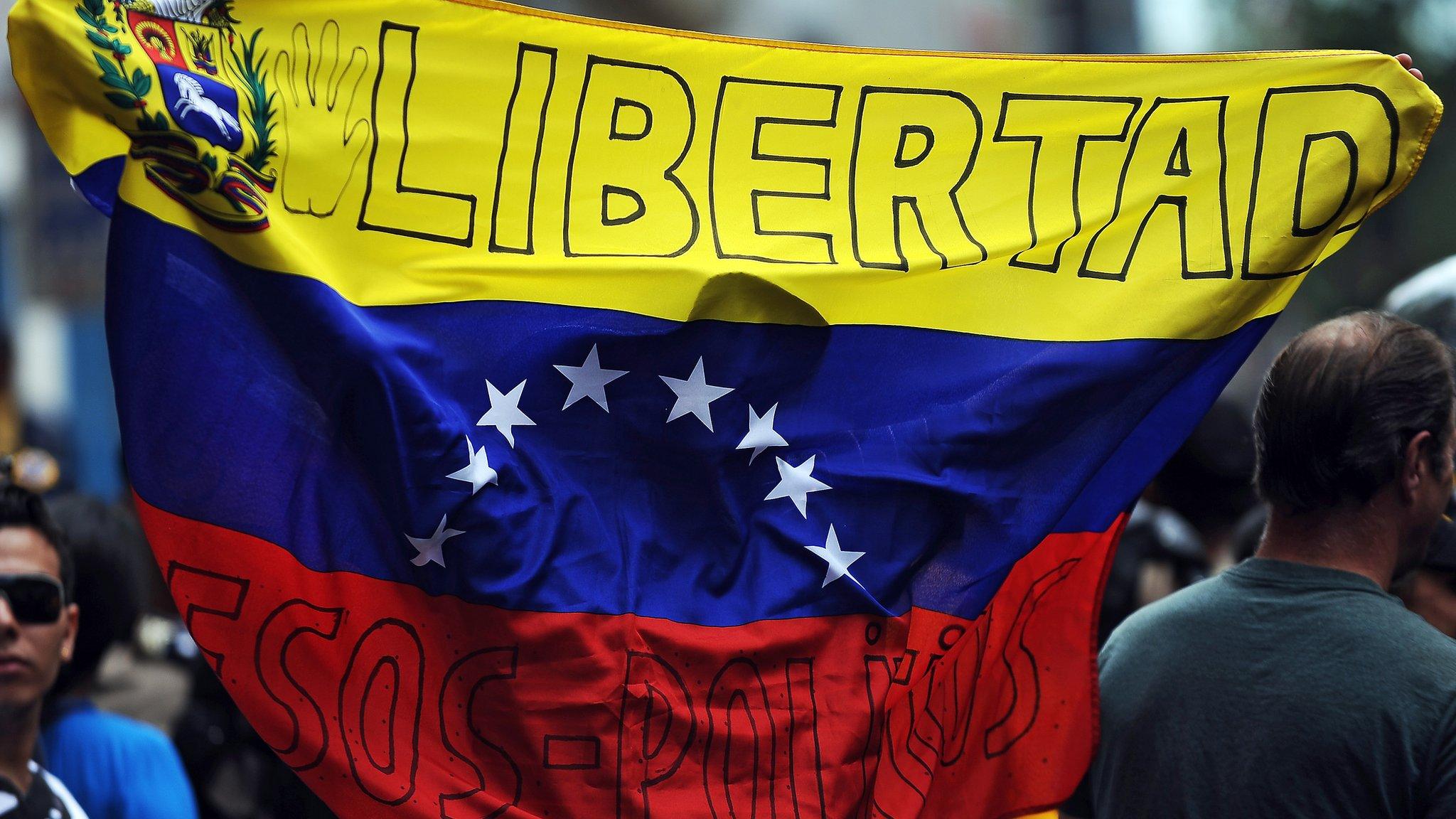
- Published24 October 2017
